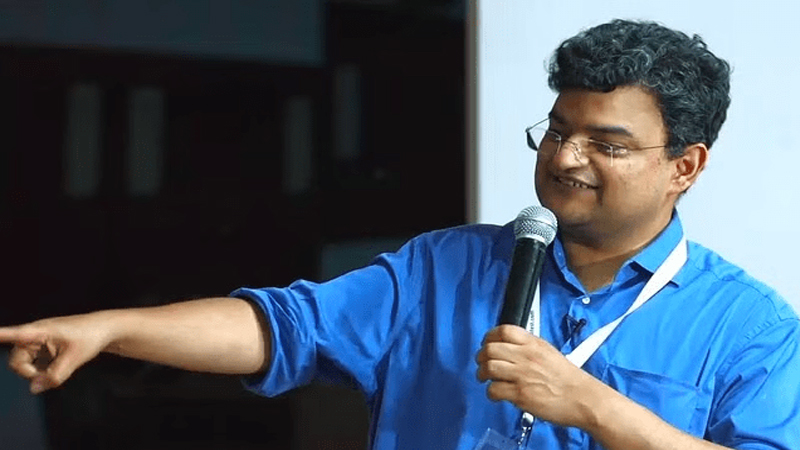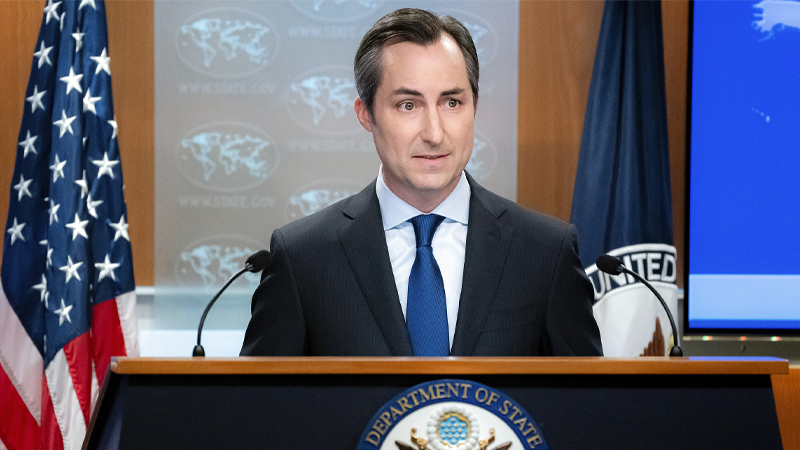Indian scientist and right-wing political commentator Anand Ranganathan sparked a heated controversy by advocating for an Israel-like solution in Kashmir during “The Samosa Caucus Podcast.” Hosted by ANI’s Smita Prakash, the episode featured co-panelists Abhijit Iyer-Mitra, a senior fellow at the Institute of Peace and Conflict Studies; Sushant Sareen, a senior fellow at ORF; and TV personality and political analyst Tehseen Poonawalla.
Ranganathan, who also serves as the consulting editor for the Hindu nationalist publication Swarajya, expressed his dissatisfaction with the current policies in Kashmir, claiming they had failed Indians, especially Kashmiri Hindus. “I am not enthused by Kashmir at all. I don’t want to visit it. All our policies, across different governments, have failed us Indians—starting with the Kashmiri Hindus. The claim about 16 million tourists visiting the valley last year is just a facade, pretending everything is fine. But we are not acting on what should be done,” he stated.
Ranganathan’s remarks about implementing an “Israel-like solution” included the need for rehabilitation of displaced Kashmiri Hindus and a more aggressive stance against terrorism. “You haven’t rehabilitated 700,000 Kashmiri Hindus. All the money from the tourists is going to the terrorists. This terrorism or militancy, whatever you call it, is going to continue,” he added. He further compared India’s situation to Israel’s handling of similar issues, saying, “Israel has catered to its people, but we haven’t. Despite that, yes, there may never be a solution because of the ideology of the people who hate Israelis and the ideology of the people who hate Hindus.”
The podcast went viral, leading to widespread backlash on social media. Anuradha Bhasin, a senior Kashmiri journalist, criticized Ranganathan’s comments, calling them a despicable advocacy for genocide. “A HRWinger (Hindu-Right Winger) advocating Israeli-like genocide in Kashmir is despicable. He refers to Hindus as ‘our people’ versus the Muslims. None of those sitting in this podcast, including those who disagreed with him, expressed any outrage at the horrifying, inhuman suggestion. Shameful,” she wrote.
Ranganathan’s stance is not unprecedented among Hindu nationalists, who have previously suggested adopting the “Israel model” in Kashmir. In November 2019, senior Indian diplomat Sandeep Chakravorty explicitly cited Israeli settlements as an inspiration for India’s approach to Kashmir.
Raqib Hameed Naik, founder of Hindutva Watch, condemned Ranganathan’s remarks, highlighting their genocidal undertones. Saniya Sayed, another critic, shared a podcast clip, expressing her shock at the casual propagation of hate under the guise of nationalism.
Ranganathan also echoed co-panelist Abhijit Iyer-Mitra’s controversial comments on Kashmir’s fertility rates, aligning with narratives that dehumanize Muslims. Support for Ranganathan came from right-wing journalist Aditya Raj Kaul and Nupur J Sharma of Opindia, who defended his call for an Israel-like approach.
Tehseen Poonawalla later clarified on social media that while he disagreed with Ranganathan, he believed Ranganathan’s statements did not advocate for genocide. Despite the backlash, Ranganathan stood by his comments, asserting that his call was for preventing another genocide by adopting stringent measures.
The Jammu and Kashmir Students Association condemned Ranganathan’s statements, demanding legal action against him. They described his rhetoric as promoting violence and suffering, not peace.
The debate over Ranganathan’s comments highlights ongoing tensions and differing perspectives on the Kashmir issue, amplified by the complex and evolving relationship between India and Israel, especially under Prime Minister Narendra Modi’s administration.











Leave a Reply